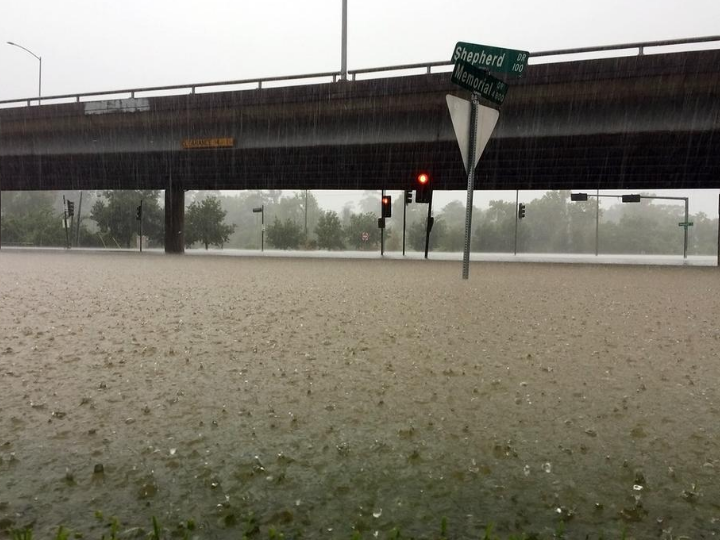
Three years after Hurricane Harvey dropped devastating amounts of rain across the Houston area, most people whose homes flooded are back home or in other permanent housing.
But a survey by the Hobby School of Public Affairs at the University of Houston found people remain affected by the experience – overwhelmingly in favor of public funding to reduce the threat of flooding and of government regulations to reduce the impact of climate change.
Almost 20% of those displaced by the storm said they are still in temporary housing.
The survey is the latest in a series looking at the impact of the 2017 hurricane, funded by the National Science Foundation to provide a quantitative look at the region’s recovery from a storm that dropped more than 50 inches of rain on parts of the city, caused $125 billion in damage and is directly or indirectly blamed for more than 100 deaths.
Kirk P. Watson, founding dean of the Hobby School, said more than two-thirds of people surveyed are worried about global warming, and three out of four believe warming poses a serious threat of future flooding. More than half said people in the United States already are being hurt by global warming.
“People are focused on the future, and we found a large majority support both government funding for more wind and solar power and government regulations to limit greenhouse gas emissions,” Watson said. “There is a strong consensus that global warming poses a clear and present threat in the form of future flooding.”
Pablo Pinto, director of the Center for Public Policy at the Hobby School, noted more than 90% support mitigation projects including elevating homes in flood-prone areas, widening bayous and banning construction in floodplains. Creating new reservoirs or retention basins drew support from 93% – slightly higher than in a survey conducted just a few months after the storm.
“And while people were most likely to choose ‘no tax increase’ as their favored option, we found they were more sensitive to increases in sales taxes than property taxes, giving us some ideas about how willing people are to pay for projects and what mechanism they support to do so,” Pinto said.
Among the other findings:
- 41.9% said their homes were damaged by Hurricane Harvey. Of those, slightly more than 40% had to move out of their homes, at least temporarily. 60% of those who moved out are now back in their homes. An additional 21% are in new housing, while more than 18% remain in temporary housing.
- Respondents overwhelmingly support flood mitigation policies, ranging from 93% who support a third reservoir or other retention basin to 78% who support a home buyback program for those affected by flooding. 92% supported elevating homes in flood prone areas, widening bayous and banning construction in floodplains.
- 52% said they are somewhat or very confident city and county officials know how to prevent future flooding.
In general, respondents were more likely to rate state and local officials favorably than unfavorably.
Renée Cross, senior director of the Hobby School, noted that Texas Gov. Greg Abbott and Houston Mayor Sylvester Turner were viewed favorably by 47% and 44% respectively, compared with 31% who viewed Abbott unfavorably and 26% who said that about Turner.
“That didn’t hold true for President Trump, however,” she said. “He was rated favorably by only 35% of residents, while 54% rated him unfavorably.” That was reversed among Republicans, with 71% rating him favorably and 20% unfavorably.
The survey was conducted between May 20 and June 23 and involved a representative sample of residents in Brazoria, Fort Bend, Harris and Montgomery counties. In total, 1,065 people responded. The full survey is available on the Hobby School website.
“All in all, we found that most people felt they had recovered from Harvey,” said Sunny M.C. Wong, an economist and professor at the Hobby School. “About 22% were not insured, but of those who had insurance, about two-thirds said insurance covered all or most of their losses. Most who lost jobs were back on the payroll within six months.”
In addition to Watson, Pinto, Cross and Wong, principle investigators for the project include Jim Granato, associate dean of the Hobby School; Richard Murray, a research associate with the Hobby School; Mark P. Jones, a political science fellow at Rice University’s Baker Institute for Public Policy; and Robert Stein, a political scientist at Rice University.